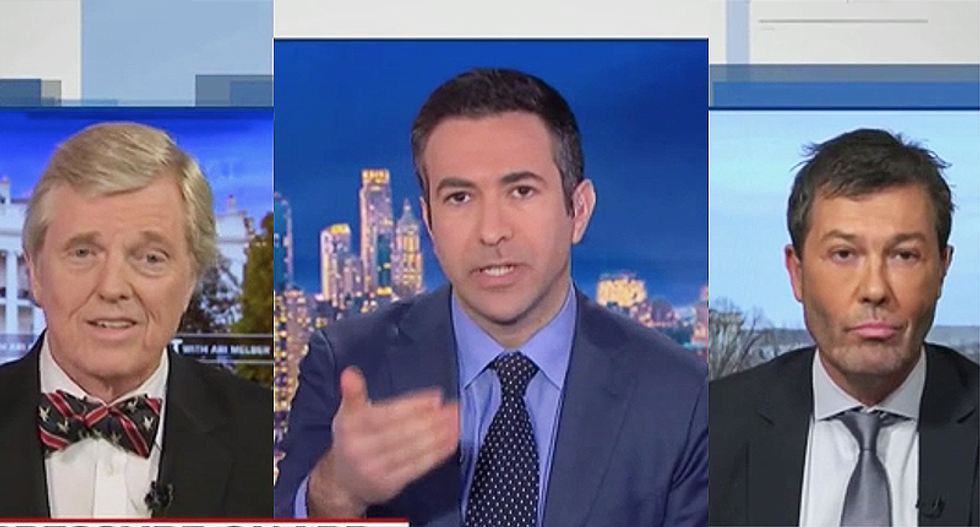
Former federal prosecutor John Flannery and Democratic strategist Julian Epstein agreed that if the Republicans try to avoid releasing the special counsel's report, they'll look like they're intentionally trying to hide something.
Epstein explained that in 1974 during the investigation of Richard Nixon and in the 1990s when investigating Bill Clinton, they had access to all grand jury material.
"We received witness testimony. We received videotape. We received all sorts of grand jury material," he said. "We received it in early September. We spent -- we had a team of investigators that spent a month going through it and figuring out making recommendations to the members what of the grand jury material should be made public and what should be kept secret. There is ample precedent for this."
He noted that Attorney General Bill Barr isn't likely to get away with holding information back.
"It's a lengthy process, but I think the merits are all on the side of the House Judiciary Committee and to the extent that there are issues for retaining privacy, most of the reasons for privacy evaporate after an investigation," he said.
He also explained that the courts could also intervene and grant that the report be released to the public.
"The question for Barr is: do you want to pay me now or do you want to pay me later?" he asked. "Do you want to do it the easy way that's consistent with precedent or do you want to do it the hard way that is going to make you look like the cat who swallowed the canary, trying to cover something up for a president that is viewed deeply suspiciously by a majority of the public."
Flannery said that Rep. Jerry Nadler (D-NY) has already framed this within the context of obstruction of justice if the Congress doesn't have access to the report.
"I think the backup of the committee, if they issue, as I expect they will the subpoenas for the certain named individuals that center around the Comey firing, it's like a first slice going chronologically from the beginning of our discovery of misconduct, if you will, by Trump and his acolytes," said Flannery.
He said that the public is already aware of the notes given to the special counsel that were subject to privilege, but that John Dowd and Ty Cobb waived it.
"So, it seems to me they have no ability to block either those witnesses or the documents that they have," Flannery continued. "And that will be very helpful. And I also wonder if we wouldn't do better summoning some of the people who were assistant special counsel in the investigation who actually interviewed these people outside the grand jury to tell us what they found."
Watch the segment below:




